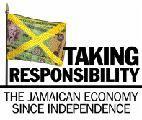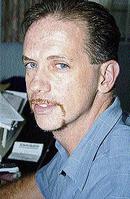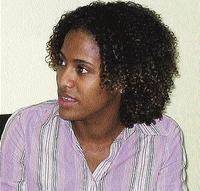


Rapley and DuncanLast December, at a public event in Emancipation Park, Jamaica was introduced to the Jamaican Economy Project (JEP). In this coming year, its offspring think tank will announce itself to the country.
While this will be the first of its kind in Jamaica and the Caribbean, think tanks have become permanent features of many democratic societies where they play an important role in enhancing development. Largely funded by endowments and grants, a think tank is a group of independent researchers who work to increase public awareness of policy issues and to influence governments to act on issues of national importance. A recent report commissioned by the Global Development Network - which brings together several such institutes around the world - opens, "Policies that are informed by evidence help in the effective identification of needs and in the formulation of better strategies."
This new think tank, then, is a well overdue addition to Jamaica's democratic landscape. It will finally add solid data and evidence-based research to our usually lively but sometimes empty political discourse conducted in our newspapers, on radio call-in programmes, and even in Parliament and on various street corners.
Pragmatic
Think tanks are pragmatic in their orientation and research which can sometimes frustrate the academic researcher who prefers a focus on the theoretical. The JEP was no stranger to this kind of divide. Near itsconclusion, four of its researchers chose to withdraw from the project, objecting that it was too narrowly economistic in its orientation, even though it had incorporated a wide array of disciplines, from economics to public management to sociology.
Still, the overwhelming response to the Jamaican Economy Project has been favourable. Far more people attended the launch than the organisers ever hoped for; public discussion has continued since; and people continue calling and emailing the project office, from all over Jamaica and around the world, to ask how they, too, can get involved.
Even controversy has served the project well. "When this project set off," comments John Rapley, "I told the people involved that it would succeed if it excited many people, but also angered a few. You know that you are challenging people to rethink assumptions if they squirm a little."
The principal objection has tended to revolve around the project's conclusions about the 1970s. "In a way, that's a pity," adds Rapley, pointing out that the project report itself did not dwell on the 1970s. Looking at the full sweep of Jamaica's post-independence history, it has a dozen appendices on several different topics, with several more working-papers to come.
Still, Rapley understands why objectors feel the project was unduly hard on the 1970s. "If you're writing principally about the economy, then there is no getting away from the damage done in the 1970s. So even though our research led us to conclude that there were many social and cultural gains in the 1970s, we have yet to be able to measure these to determine if the gains were really greater than the economic costs," he says.
Critics
However, it is not merely Manley partisans of the 1970s who have criticised the project findings. So, too, have some on the other side of the divide, who feel its work has understated the gains of the 1960s. Having critics on both sides of Jamaica's political divide would appear to vindicate the claim of project researchers that they have no political agenda, but merely want to set the record straight.
"The fact is, the data do not support the widespread perception that the 1960s were a golden age," insists Rapley. "There is considerable truth to the adage that the 1970s occurred because of the 1960s."
Imani Duncan, who served as executive director of the Jamaican Economy Project, makes clear that its goal was never to establish one truth above all. "What we want to do is to stimulate and inform a public debate." Ms. Duncan played a seminal role in the transformation of the JEP into a think tank. The move is a quite natural one.
While the JEP was designed to address one major research gap - the objective evaluation of Jamaica's socio-economic history that had not been done before - in the conduct of the project there was the realisation that there were many other research gaps. Indeed, there was a general lack of high quality, timely, cutting edge research in Jamaica of the kind that could benefit not only the public but also the private/business sectors.
Currently, if you want applied economic research, for instance, businesses have to employ expensive foreign consultants, whose work is often of uneven quality, or simply unsuited to Jamaica.
Imani Duncan passes the torch on to another young Jamaican, the Rhodes Scholar and radio personality Kim-Marie Spence, who takes over as executive director. "What we propose to do" says Ms. Spence, "is indigenise the research process." To do this, the think tank will draw upon a large network of Jamaican scholars abroad, as well as at home. Furthermore, through partnerships with other think tanks, it has built a truly global network of researchers. "By our third year," says Ms. Spence, "we are confident we will be able to serve the needs of just about any public- or private-sector client, in addition to performing our public-interest function."
An anthropologist by training, Ms. Spence points out that whatever our disciplinary leanings, at the end of the day, we all need the economy to do better than it has. "When I was at Oxford, I disappeared off to India to research traditional art. I couldn't have been less interested in the economy than I was then. But as time went by, I came to see that the artistic tradition of southern India ebbed and flowed with the economy: somebody had to pay for all that art, after all."
To Ms. Spence, the think tank will have failed in its mission if it does not create an environment in which growth and development can accelerate. Part of that will be about informing public discourse with solid empirical research. Part will be about drafting policy recommendations for the political and establishment. But part will be about hands-on research which will enable Jamaican businesses - both large firms and budding entrepreneurs - to better prepare for the extremely challenging, but potentially lucrative, global age.
On February 22, in Montego Bay, the new think tank will launch its operations. In light of its parentage in the Jamaican Economy Project, it is perhaps apt that its first event will be to release the substantial working paper that represents the findings of the Jamaican Economy Project.
Work in progress
"It is a work in progress," says Ms. Spence. Even though the document that will be issued in Montego Bay represents the final work of the Jamaican Economy Project, it will not be called a final report. Rather, it is being labelled a working paper. The idea is that the new think tank will carry this document forward into a public debate. At the same time, several of the appendices to the report have been spun off into larger research projects, on which the think tank will be reporting in the coming months.
"With our upcoming public fora, our regular policy reviews, our steady stream of working papers, a regular column in The Gleaner, and appearances in the media, we plan to become an important part of the Jamaican landscape," concludes Ms. Spence. "And I, for one, am optimistic that the day will come when a prosperous Jamaica can look back at the important role we played in the transformation process that brought us there."

